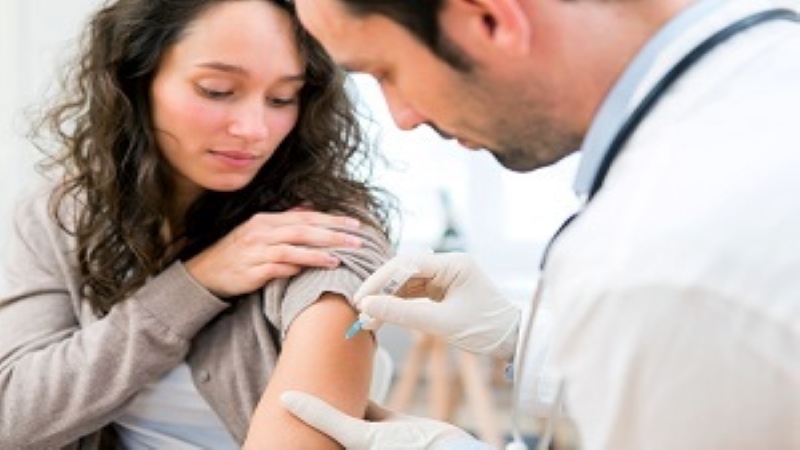The Pfizer COVID-19 vaccine was approved by the FDA Dec. 11, and the Moderna vaccine is expected to be approved soon afterward. | Shutterstock
The Pfizer COVID-19 vaccine was approved by the FDA Dec. 11, and the Moderna vaccine is expected to be approved soon afterward. | Shutterstock
As the Pfizer COVID-19 vaccine has begun to be distributed across the U.S. and internationally, the first doses have arrived in Michigan.
While the death toll from COVID-19 continues to climb, just under 85,000 units of the BioNTech/Pfizer vaccine arrived in Michigan this past week. However, with a statewide goal to vaccinate 70% of Michiganders (approximately 5.4 million people) by the end of next year, the beginning doses are a only the first step to controlling the pandemic and its spread.
Within Michigan, the first batches of the vaccine will be delivered to 56 hospitals and 16 health departments statewide, according to Bridge Michigan. The second vaccine, developed by pharmaceutical company Moderna, is expected to be approved within a few days. Due to concerns of security, health officials did not disclose the names of which hospitals would be first to receive the Pfizer units.
One official who spoke out about receiving a portion of the first vaccines was executive vice president and clinical officer Dr. Adnan Munkarah of the Henry Ford Health System. Based in Detroit, Munkarah stated that Henry Ford would be receiving approximately 4,875 units for its health workers this week.
Distribution for the first phase of vaccines will be done in three segments. The first will be reserved for those working (both paid and unpaid) in health care environments, as well as residents of long-term care facilities. The second group will be essential workers in vital industries, including those in education, correctional facilities, infrastructure fields and more. The final group of this phase will include high-risk populations for COVID-19 and those who are 65 years of age and older.
Though these are the initial distinctions for each group, Michigan's chief medical executive Dr. Joneigh Khaldun emphasized that “the situation is continuously evolving,” and that the groups are dependent on the number of doses available, reported by Bridge Michigan. As the Michigan case total is almost 447000, according to Michigan.gov, the vaccines will help to reduce the rate of transmission for a widely spreading virus.




 Alerts Sign-up
Alerts Sign-up